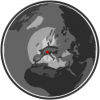
The EESC is a unique forum for consultation, dialogue and consensus between representatives from all the different sectors of "organised civil society"; including employers, trade unions and groups such as professional and community associations, youth organisations, women's groups, consumers, environmental campaigners and many more. Set up in 1957; the EESC has always been an integral part of the EU; advising EU decision-makers and ensuring that ordinary people have a say in Europe’s development. It aims to help ensure EU policymaking and legislation is more democratic, more effective and genuinely reflects the needs of EU citizens. The European Parliament, Council and Commission are legally obliged to consult the EESC when passing new laws. The EESC examines the proposals and draws up opinions based on agreement reached between its 350 members from 28 EU Member States. The opinions are debated and adopted by simple majority at EESC plenary sessions, and then sent to the EU lawmakers to contribute to the law-making process by influencing their thinking.
-01-e4da3.jpg)
The European Economic and Social Committee chose to use our definition of the notion “Sustainable Competitiveness”! See the Official Journal of the European Union entitled Opinion of the European Economic and Social Committee on Listening to the citizens of Europe for a sustainable future (Sibiu and beyond)’ (2019/C 228/06) Adopted at plenary session No 542 on 20.3.2019. The Opinion is available in 23 official languages of the EU!
As presented on the page 12 of the opinion, there was a suggestion to use World Economic Forum's definition for sustainable competitiveness, but our methodology was preferred by a majority vote- Result of the vote: For: 64 Against: 147 Abstentions: 13- so the EESC chose to use the definition we proposed in The Sustainable Competitiveness of Nations.
The solution to this optimization problem splits the nations into two categories: (i) those achieving the maximally doable, tracing the “frontier” or upper envelope to the scatter of data points and (ii) sub-optimal and thus under-achieving nations falling behind the envelope. Using the Forum data for 125 nations in 2013, we identify the frontier and sub-frontier nations. For each suboptimal nation we identify its “peers” on the frontier suggesting how its sustainable competitiveness might be improved.




